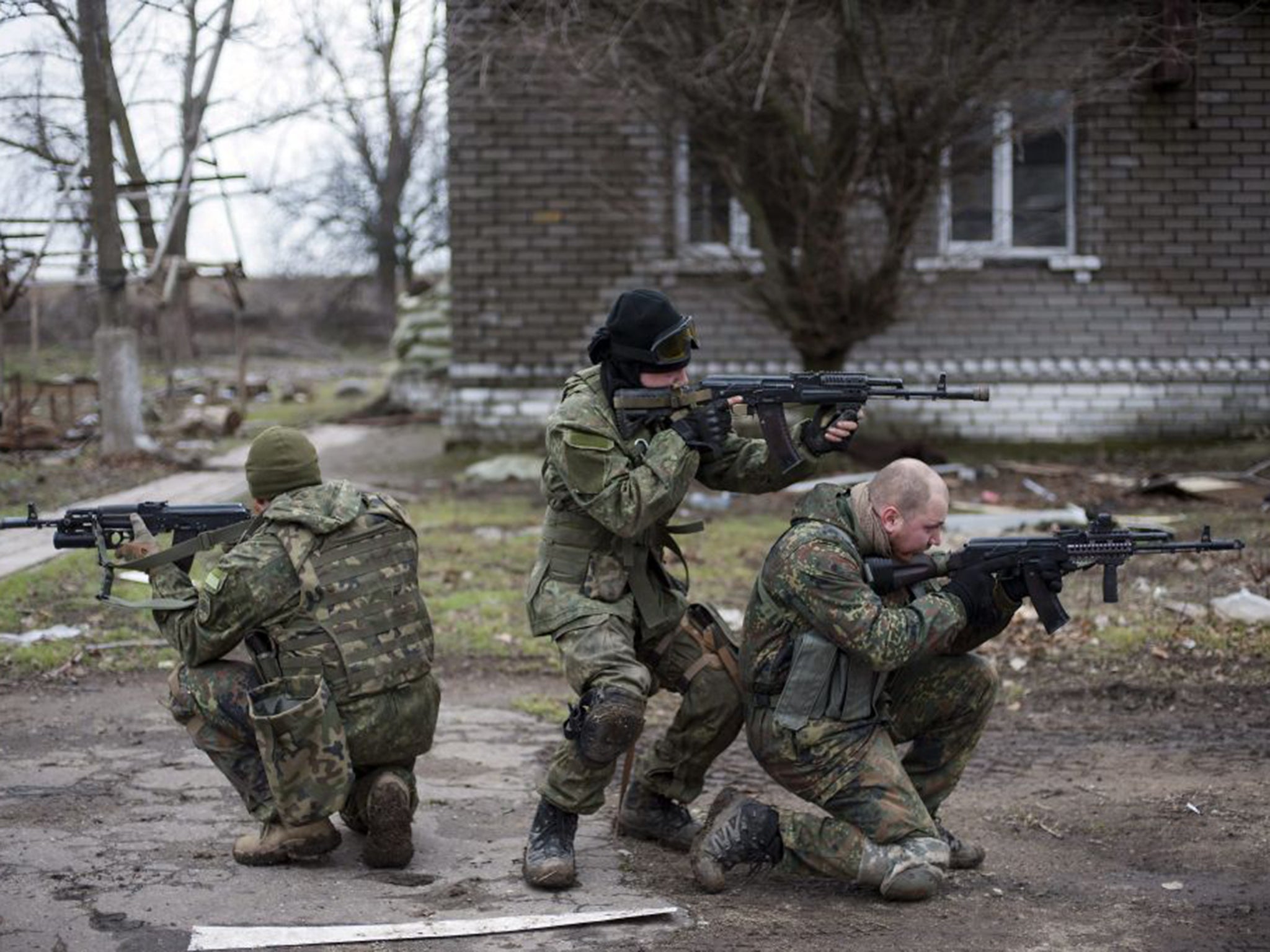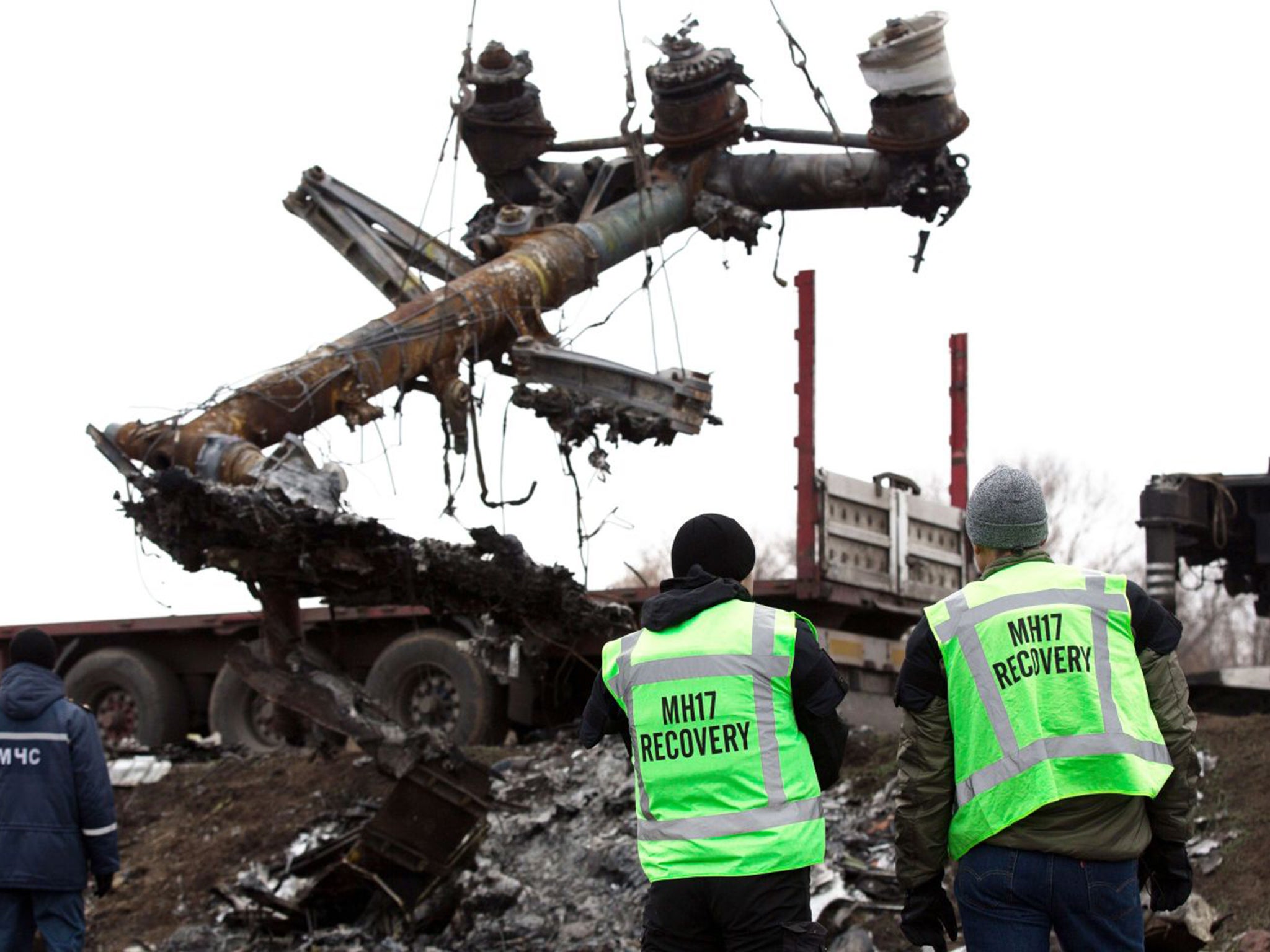Ukraine crisis analysis: The US and Nato cannot solve this – only Ukrainians can do that
Diplomatic Channels: President Poroshenko already faces a difficult job in selling a new deal to his country

Your support helps us to tell the story
From reproductive rights to climate change to Big Tech, The Independent is on the ground when the story is developing. Whether it's investigating the financials of Elon Musk's pro-Trump PAC or producing our latest documentary, 'The A Word', which shines a light on the American women fighting for reproductive rights, we know how important it is to parse out the facts from the messaging.
At such a critical moment in US history, we need reporters on the ground. Your donation allows us to keep sending journalists to speak to both sides of the story.
The Independent is trusted by Americans across the entire political spectrum. And unlike many other quality news outlets, we choose not to lock Americans out of our reporting and analysis with paywalls. We believe quality journalism should be available to everyone, paid for by those who can afford it.
Your support makes all the difference.The severed section of the fuselage lay 20 yards from a part of the undercarriage, beyond that were two upturned seats. Across the road, an open suitcase was gathering rain, next to pairs of children’s shoes, magazines and a set of keys. These were the remains of Flight MH17 spread on fields around Debaltseve on the day the official inquiry report into the destruction of the Malaysian Airliner two months previously was issued.
Travelling to the site in eastern Ukraine, from the port of Mariupol, which was under attack by the separatists, I had to go through the checkpoints of the Russian Orthodox Army and the Peoples’ Republic of Donetsk Defence Force. On the opposing side, there were the barricades of the Azov and Donbass battalions, Ukrainian private armies. On the flat, scarred landscape along the road were other reminders of the civil war, row after row of shut-down coal mines.
That was the Ukraine crisis in microcosm. Tension between the West and Russia, already high, ratcheted up even further by the shooting down of the plane; an internecine conflict made particularly vicious by sectarian oligarch-funded militias; an economy in freefall; the population facing the prospect of no heating with an icy winter ahead.
An agreement, however, was signed in the capital of Belarus, which was supposed to change all that with a ceasefire leading to something more permanent setting up a new relationship between “Novo Russia” and the rest of Ukraine.
But it became very clear from speaking to returning separatist delegates in Donetsk and Ukrainian ministers in Kiev that both had different interpretations of what the Minsk Protocol demanded of them. Neither side trusted the other, neither believed that peace was about to break out.
At the Yalta conference, an annual gathering of international leaders, diplomats and the media, held for the first time in the Ukrainian capital following the Russian takeover of Crimea, the prevailing mood was one of uncertainty.
An American diplomat described how Senator John McCain and his fellow Republican hawks, smarting at failing to persuade the White House to arm the Syrian rebels, were determined the same would not happen over Ukraine. What about the Minsk agreement signed no more than week previously? I asked. “Do you really think it’s going to last?” came the surprised response.
It did not. The fighting soon began to spread with a fierce struggle to take Debaltseve, the precursor to another assault on Mariupol. The separatists were receiving large quantities of arms from across the border. There were also increasing numbers of “volunteers” from the Russian armed forces.
In Kiev, the talk among those returning from the frontline was one of betrayal. Members of the paramilitaries, some of them neo-fascists, were particularly loud. There was apprehension that the extremist political groups such as Right Sector and Svoboda, would do well in the forthcoming parliamentary elections. That did not happen, but, nevertheless, hard-right militia leaders were subsequently appointed to official posts.

On Wednesday the Russian President Vladimir Putin, the Ukrainian President Petro Poroshenko, the German Chancellor Angela Merkel and the French President François Hollande will meet again at Minsk. This, say critics, is just the rehashing of an old deal. But the problem with Minsk was not the conditions it put forward, but the fact that they were not implemented. Work can be done, with international guarantees, to achieve this.
What is the alternative? From the Americans and Nato come the constant choruses that the Russians cannot be trusted. There are repeated statements from the US about arming the Ukrainians. Ukraine is not a member of Nato, so it cannot invoke Article Five to seek help from other member states. The idea that the West will, nevertheless, intervene against Russian forces on the ground is risible. The Obama administration may go ahead with arms supplies, but to whom? The regular army, or the paramilitaries as well? What about training? Just look at how long it is taking to train “moderate” Syrian rebels now that the West has at last agreed to do so.
The Ukrainian military is not a united force. More than 300 senior officers have been arrested by the Ukrainian authorities for allegedly spying for Russia. Some commanders openly declare that the military hierarchy in Kiev cannot be trusted. Semyon Semechenko, a paramilitary leader and MP injured in heavy fighting in Debaltseve at the weekend, had urged during a visit to Washington that weapons should be sent directly to the front, bypassing the general staff.
President Poroshenko already faces a difficult job in selling a new deal to his country, including hardliners in his own cabinet. Raising expectations that the Americans, or Nato, will ride to the rescue will strengthen the rejectionists.
It will also be irresponsible, the violence will be prolonged. Today I discovered that the man who acted as my driver to the MH17 crash site, someone I had worked with for months, was severely injured by shelling in Donetsk and will be in hospital for six months. My translator is among the thousands who fled the city. The dead from both sides I knew personally is 23. The estimated total death toll is 5,400, and that is a conservative estimate.
Join our commenting forum
Join thought-provoking conversations, follow other Independent readers and see their replies
Comments